Lucky charms are a traditional practice widely applied in many Asian countries, such as China, Japan, South Korea, Vietnam, Thailand, and Indonesia. This custom is performed during festive occasions, especially during the Lunar New Year or other significant holidays. It is regarded as a way to invoke luck and success in life, typically carried out by wearing or hanging lucky charms or sending wishes to the heavens.
Luck is a metaphysical concept that is difficult to explain scientifically. Everyone desires a life filled with luck and happiness; however, it is not easy to grasp or control luck.
Top 8 Unique Lucky Charm Customs
Due to the elusive nature of luck, people have developed spiritual beliefs surrounding lucky charm customs since ancient times, particularly during the New Year, a time of transition that marks a new milestone. Many Asian countries have their unique customs and beliefs about invoking luck and peace. Below are some notable practices:
1. Myanmar
People in Myanmar place significant belief in fate, believing that all events, whether good or bad, are beyond their control. Many consult fortune-tellers in hopes of foreseeing the future, so they can prevent disasters. Consequently, fortune-telling is a lucrative profession in the country.
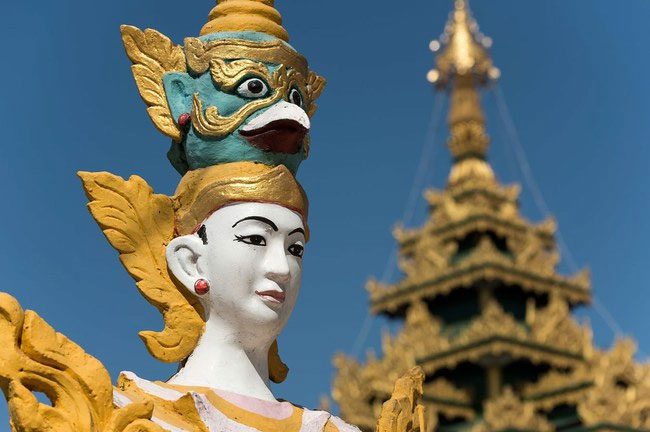
Nat represents the protective spirit.
In folk culture, the people of Myanmar worship Nat (meaning spirits), rooted in the belief that everything has a spirit that can bring misfortune if not properly revered, similar to Shinto beliefs in Japan.
To invoke luck, participants will ask for wishes from the spirits. If their wishes come true, they are obliged to offer thanks to the spirits. Rituals often include drinking alcohol, feasting, and donating money under the supervision of Nat Ka Daw (self-proclaimed wives of Nat).
Another method of prayer is counting prayer beads. This custom is based on the nine qualities of the Buddha, where an individual counts beads according to a fixed cycle over 81 days while reciting one quality of the Buddha. The wish will come true when the person completes the ritual after 81 days.
2. India
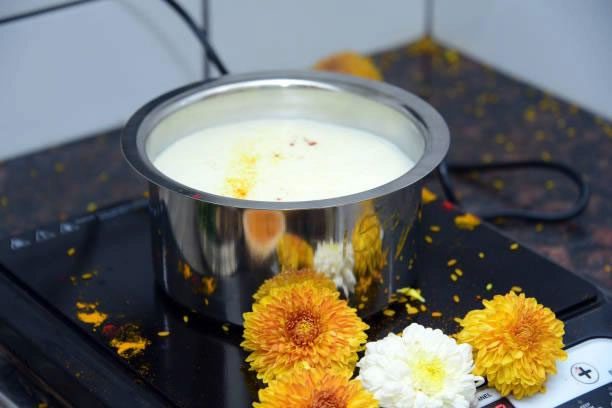
Indians boil milk when moving into a new house.
When moving into a new home, Hindus often perform rituals to protect the house from negative energies and attract positive ones. This housewarming ceremony, called Griha Pravesh Puja, involves the host boiling a pot of milk and pouring it towards the East, wishing for peace and prosperity in the home.
According to Indian feng shui (Vaastu Shastra), the East is where the sun rises, symbolizing new beginnings and auspiciousness, hence the need to pour milk in this direction.
However, if someone accidentally spills milk before, during, or after a wedding, misfortune is believed to befall the newlyweds.
3. China
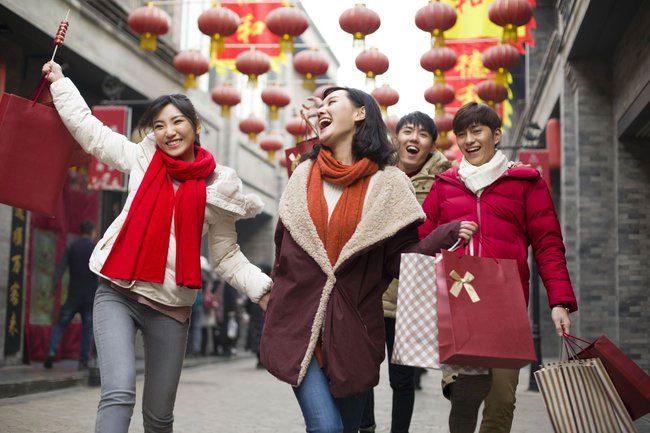
Chinese people believe that the numbers 6 and 8 are lucky numbers.
The Chinese have a custom of using homophones and puns. Many lucky words or numbers also arise from this wordplay. For example, the word for fish in Chinese is pronounced “Yu”, which is a homophone for “abundance.” Thus, during the New Year’s Eve dinner, families eat a fish, which is believed to bring prosperity in the new year.
Another example is that the pronunciation of the number six is a homophone for “smooth flowing,” making six a lucky number, representing the idea that everything goes smoothly. The number eight in Cantonese rhymes with “fa,” meaning wealth and prosperity. At weddings, guests often give even amounts of money, which may include the numbers 6 or 8, implying blessings for financial success and marital happiness.
4. Japan
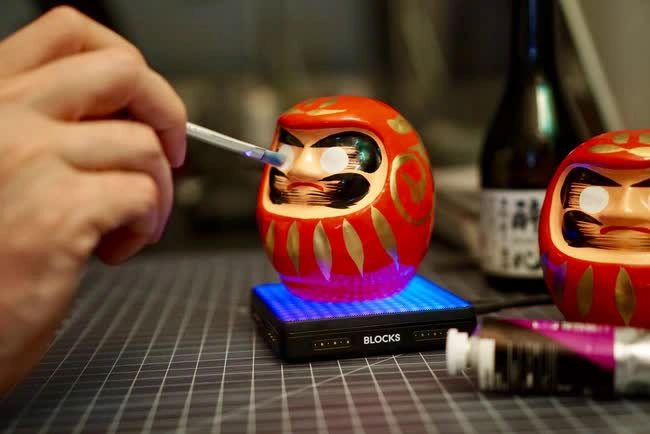
People draw on one eye to make a wish.
In Japanese culture, the Daruma doll is one of the symbols of luck. The Daruma doll is designed to be round, hollow inside, and notably has no eyes.
At the beginning of the year, Japanese people typically buy Daruma dolls from temples and draw on the left eye of the doll, symbolizing their determination to achieve their New Year’s goals. Once the goal is achieved, they fill in the other eye and return the doll to the temple they purchased it from the following year. All dolls are then burned in a ceremonial ritual. Another characteristic of the Daruma doll is that it never falls over, representing the resilience and tenacity of the Japanese against challenges.
In addition to the Daruma doll, the waving cat statue Maneki Neko is another symbol of luck, particularly for business owners. Small business owners often place Maneki Neko in their stores, hoping to attract more customers and bring in wealth.
5. Thailand
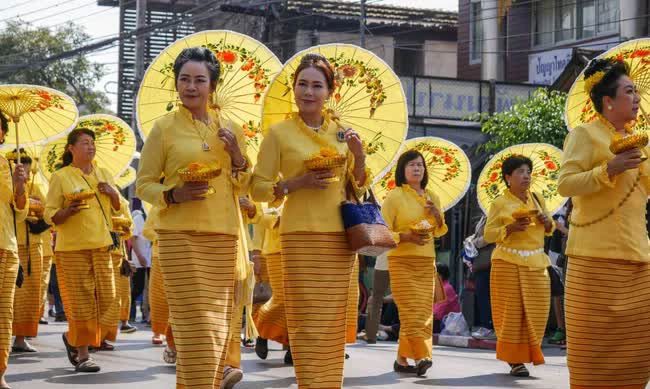
Each day of the week corresponds to a specific color, wearing the right color brings luck.
According to ancient Thai tradition, each day of the week corresponds to a specific color, and wearing clothes of that color is believed to bring good fortune. Specifically:
- Monday: Yellow
- Tuesday: Pink
- Wednesday: Green
- Thursday: Orange
- Friday: Light Blue
- Saturday: Purple
- Sunday: Red
Although this belief is not as prevalent in modern society, many people still remember the corresponding colors for each day, and if they were born on a particular day, their lucky color is that day’s corresponding color. For instance, if you were born on a Thursday, your lucky color is orange.
Additionally, while Japanese business people have the lucky cat, Thailand has the goddess Nang Kwak. She is considered the patron deity of shops and businesses, bringing good fortune. They place her at their stores or wear amulets featuring the goddess.
6. Laos
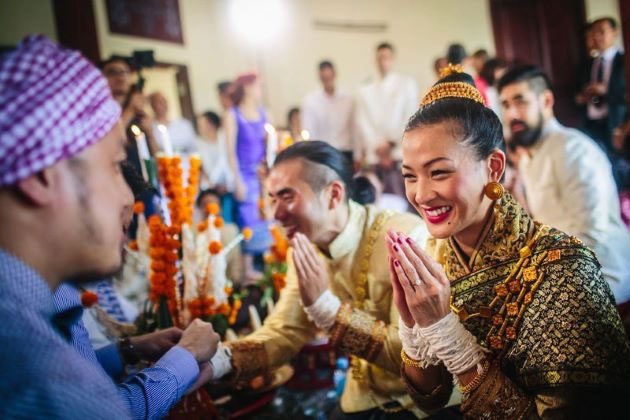
Participants in the lucky charm ceremony wrap white cotton strings around their wrists.
People in Laos and Thailand believe that a person is a combination of 32 biological organs, each having a corresponding protective spirit known as Khwan. These spirits often wander outside the body, causing spiritual imbalances and leading to illness.
The Baci (Sou Khwan) ceremony is a soul-calling ritual originating from ancient Laos. During the ceremony, an elder ties white cotton strings around the wrists of participants and chants to call the protective spirits back to their bodies, thus increasing luck and peace. Tying the white strings symbolizes the summoning, unification, and binding of the 32 spirits to the body, helping to restore balance and invoke peace for the participants.
7. South Korea
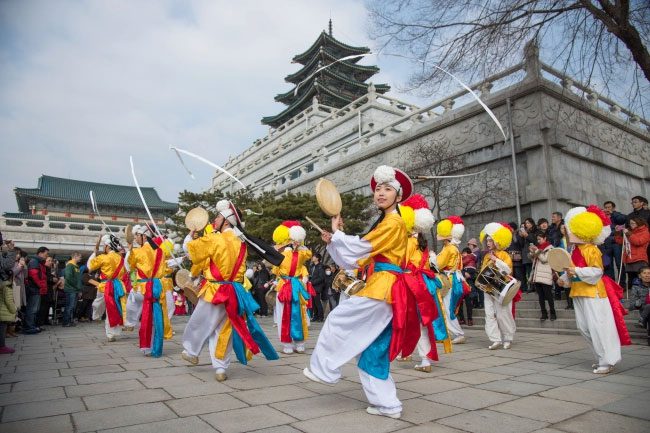
Dreaming of a pig is considered a good omen.
In South Korea and many other Asian countries, the Lunar New Year is an excellent opportunity for people to set new intentions. However, a notable difference is that many Koreans do not wash their hair on New Year’s Day because they do not want to wash away their good fortune and luck, similar to the Vietnamese practice of not sweeping the house on the first day of the year. Korean students also refrain from washing their hair to avoid “washing away” knowledge they have learned.
Additionally, in Korean, the pronunciation of the word “pig” is similar to “jade.” Thus, pigs symbolize fertility and wealth. Dreaming of a pig is considered a lucky omen.
8. Singapore
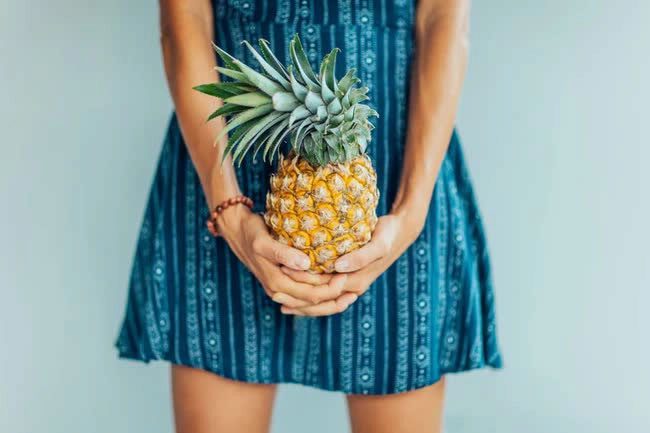
At the start of the New Year, the Chinese in Singapore will roll a pineapple through their door.
According to the customs of the Hokkien people, pineapples are considered a fruit associated with prosperity. Therefore, at the beginning of the new year or during housewarming celebrations, the Chinese community in Singapore rolls a pineapple through the front door, hoping to bring luck and prosperity into their homes.


















































